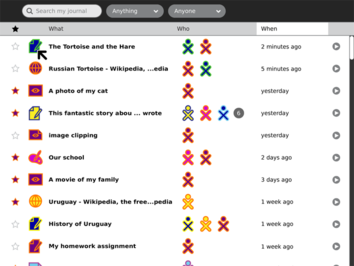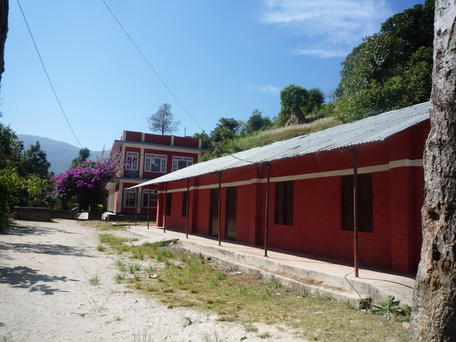All Posts
Political support for OLPC brings new challenges to education in Mauritius
In 2010 the Labour Party of Mauritius adopted the One Laptop Per Child (OLPC) project as a national program in their National Election Manifesto. The Labour Party is a member of Alliance de l’Avenir, the coalition that won the 2010 general elections in Mauritius. Even the Alliance program (also available on Scribd) mentions the OLPC, first in the Executive Brief (page 9):
Proposal from OLPC Paraguay on how to manage Sugar or other educational software
The project to deliver One Laptop Per Child (OLPC) for educational purpose in developing countries is doing great in Paraguay. According to developer Bernie Innocenti, this success comes from a way to manage the development of the Sugar educational software that other countries (or any other similar projects, see for example the Teachermate or the italian JumpPC) could and should imitate.
OLPC in Paraguay educates both little kids and teenagers
Sugar is an educational graphical computer environment specifically developed for collaborative learning in primary school. Initially, Sugar was developed and only used within the famous One Laptop Per Child project (OLPC) launched by Nicholas Negroponte to make special laptop computers, called XO, available to the children of all developing countries. (follow the link to see an Example of the Sugar graphical interface.

One hour with the XO laptop in a Nepali school
On Nov. 5th, 2009, during the first OLE Assembly in Kathmandu, I visited a class that uses the XO laptop in the Binayak Bal School of Badal Gaun, Nepal.
Plan for Universal Basic Education discussed in Kathmandu
The Open Learning Exchange (OLE), a network of grassroots organizations committed to providing Quality Universal Basic Education (QUBE) worldwide by 2015, held its first global assembly in Kathmandu in November 2009.
Computers in the classroom: how JumPC helped teachers and pupils without turning the system upside down

Last year every child of the fifth class, A section of Don Milani School in Rivoli, Piedmont got an individual laptop computer, equipped with educational software for primary school and a custom, simplified user interface (fifth class in Italy hosts 10 years old children). The computers, called JumPC, were assigned to be used for normal schoolwork and homework, in class and at home, throughout the whole year. The same experiment was carried on for shorter periods also in the third classes (section A and B) of Borgofranco di Ivrea and in class forth, section C in Novi Ligure.


